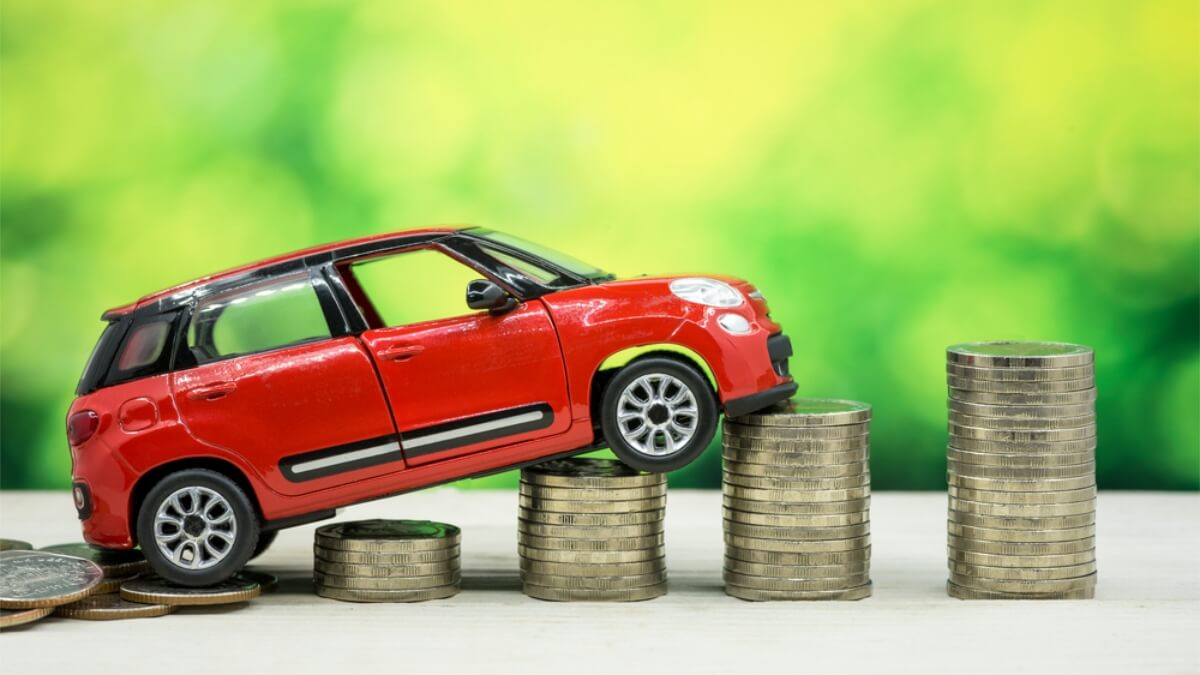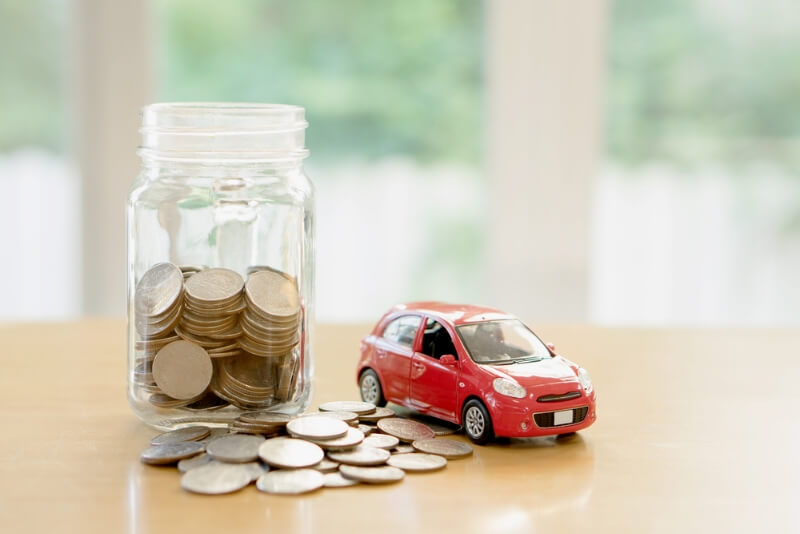
Most people don’t think very deeply about it, but cars are money eaters. Apart from some “classics,” it is 100% certain that you’re going to lose money on every vehicle you purchase. Even if you want to sell it the next day, you will still be losing hundreds or thousands of dollars. Car expenses are a real thing, and they might hurt your home budget, especially in the long run.
When you think about it, unlike real estate, cars aren’t a good investment at all. Some people even refrain from buying new cars so that they don’t lose too much money. And wait until we start talking about gas prices and maintenance during car ownership.
That being said, cars are a necessity. Not owning one might stop you from doing your business and making money in the first place. Today’s society and economics are incredibly dependent on private vehicles. If we stopped using them for some reason, the whole world would literally collapse. In other words, cars are a “necessary evil.”

Luckily, there are some things you can do to mitigate the costs of owning an automobile. Cutting a few dollars on fuel, insurance, registration, maintenance, and buying can make it much more cost-effective in the long run. In other words, it is time that you start budgeting for car expenses. Being aware of all the money that you spend on your car is very important to cut the overall cost.
Car Expenses Detailed
To know how much you’ll spend, you must first start by learning all the car expenses. In the next few paragraphs, we will cover every car expense there is.
Buying A Car ($100 to $500 per month)
Naturally, the highest cost of any vehicle is to buy it in the first place. Vehicles range from $15,000 to over $100,000, depending on the type of car. Of course, the higher you go, the more luxurious it gets. Here, it’s good to know that if a vehicle is five times more expensive, it is not five times better.
Depreciation (15% to 30% annually)
Cars depreciate over time, unlike perhaps any other product. However, not all vehicles depreciate evenly. High-end limited production luxurious cars tend to depreciate much faster than smaller, mass-produced compact cars. Also, cars from manufacturers that have better reliability record depreciate slower over time.
Cost of Gas and Electricity ($50 to $250 per month)
The highest value of ownership is connected to the price of the gas. On average, the average fuel economy of cars sold in the USA is around 25mpg. However, this number continually improves. Electric automobiles, on the other hand, are much cheaper to top up than gasoline vehicles.

Maintenance ($50 to $100 per month)
This includes the standard services like oil change, filter replacement, brake pads, etc. In other words, maintenance includes consumables. Naturally, electric cars require less maintenance than gas cars.
Repairs ($20 to $100 per month)
This includes any repair that you would do to your car that the maintenance doesn’t cover. Vehicles with better reliability records will require fewer repairs.
Registration and Insurance ($80 to $300 per month)
This is also something that you will pay for every year. Insurance will take care of repairs in case of accidents, so it’s good to have a more extensive plan here. Also, premium cars are much more expensive to insure and register than “normal” cars.
Tires ($100 to $300 annually)
Tires don’t need to be replaced every year, but they can add a considerable burden to the overall car expense. Usually, tires need to be changed every 4-5 years. Their prices vary greatly though – the larger the rim, the more expensive it gets.
Average Car Maintenance Cost Per Year
Even though it seems like it is, budgeting for maintenance is not hard at all. Today, every car dealer will give you an estimated cost for maintenance in the next 100,000 miles. Oh, and they will also give you a full maintenance plan. In other words, you’ll know how much money you’ll spend every time you visit the service.

That said, to make perfect budgeting for car expenses, you need to consider how many miles you cover annually. Let’s say that you include 20,000-miles annually. In that case, you’ll need to change the oil, oil filter and pollen filter twice every year (every 10,000-miles). Every second service, you might also need to replace the air filter (once every year). Then, every sixth service, the spark plugs, gearbox oil, and brake fluid, every fourth service the brake pads, etc. Of course, this largely depends on the car model you own – check in the owner’s manual for more info. Or ask your nearest dealer.
Because prices of replacing oil, filters, and spark plugs don’t change much, you can estimate how much you spend for car maintenance every year of your ownership. Making a car budget worksheet will ease the car ownership – no more uncertainties! An Excel spreadsheet will work just fine.
How Much Should I Budget for Car Repairs and Maintenance?
Considering everything we’ve said about how to budget for car maintenance, let’s have a look at how much you’ll spend. Honestly, this is not as easy as it sounds, because every car is different. Compact cars are much cheaper to maintain than larger cars. On an annual basis, large cars, like SUVs, might be twice as expensive to maintain.

Repair is another issue altogether. This is something that you can’t predict like with maintenance. However, you can still put repair expenses on your budget every year, even though that might not happen. Naturally, if your vehicle is still in the warranty period, you won’t need these expenses. However, even then, it’s best to prepare for the future. By putting around $200 - $300 for repairs every year, you’ll make sure that you will have enough accumulated, even if something terrible happens. And if you sell your car in the meantime, you can spend the money on a new one.
That being said, depending on the car, it is generally accepted that you will spend $1000 - $2000 on maintenance and repairs every year. Luckily, the math is pretty straightforward –follow everything we’ve said until now.
How Much Does it Cost to Have A Car Monthly?
After factoring everything we said about car expenses, let’s see how much it costs to own a vehicle on an annual basis. To do that, we won’t be doing any advanced mathematics here, simply because the American Automobile Association (AAA) has already done that for us. In a survey made in 2019, they summarized the full cost of owning a car in the USA for cars made in 2018. AAA took everything into account, including the cost of fuel, maintenance, insurance, registration, and depreciation over time. However, this doesn’t include other expenses, such as the cost of parking and substantial repairs. The annual cost expenses based on 15,000-miles driven are expressed below.
Small Sedan: $7,114
Hybrid: $7,736
Electric: $8,320
Small SUV: $8,394
Medium Sedan: $8,643
Medium SUV: $10,265
Large Sedan: $10,403
Pickup: $10,839
How to Minimize Car Expenses?

You might start to question the next car purchase after we brought out every car expense. However, there are some things that you can do to minimize the costs. Here are some of them:
- Buy a fuel-efficient vehicle: cutting on fuel costs can significantly reduce car ownership expenses. Fewer cylinders, hybrid powertrains, and plug-in electric powertrains can save you a lot of money down the road. These cars are also cheaper to insure and register.
- Buy cars with more extended warranty periods: they will save you a few bucks on repairs. Owning a car with a better warranty will make it easier to budget for car expenses.
- Durable tires: touring and grand-touring tires last very long when it comes to tread life. The best of them come with a 60,000 to 80,000-miles treadwear warranty.
- Drive less frequently: walk or use your bike instead. Vehicles consume much more fuel when driven at shorter distances, or until the engine temperature rises. You will probably need to pay for parking as well. Public transportation is also a good bet.
- Earn money by renting your car, especially if you don’t use it very frequently. Some great online services will do the job for you, including finding customers.
Repair and maintain your vehicle with a DIY repair guide. Find a service manual for your specific car right here.
